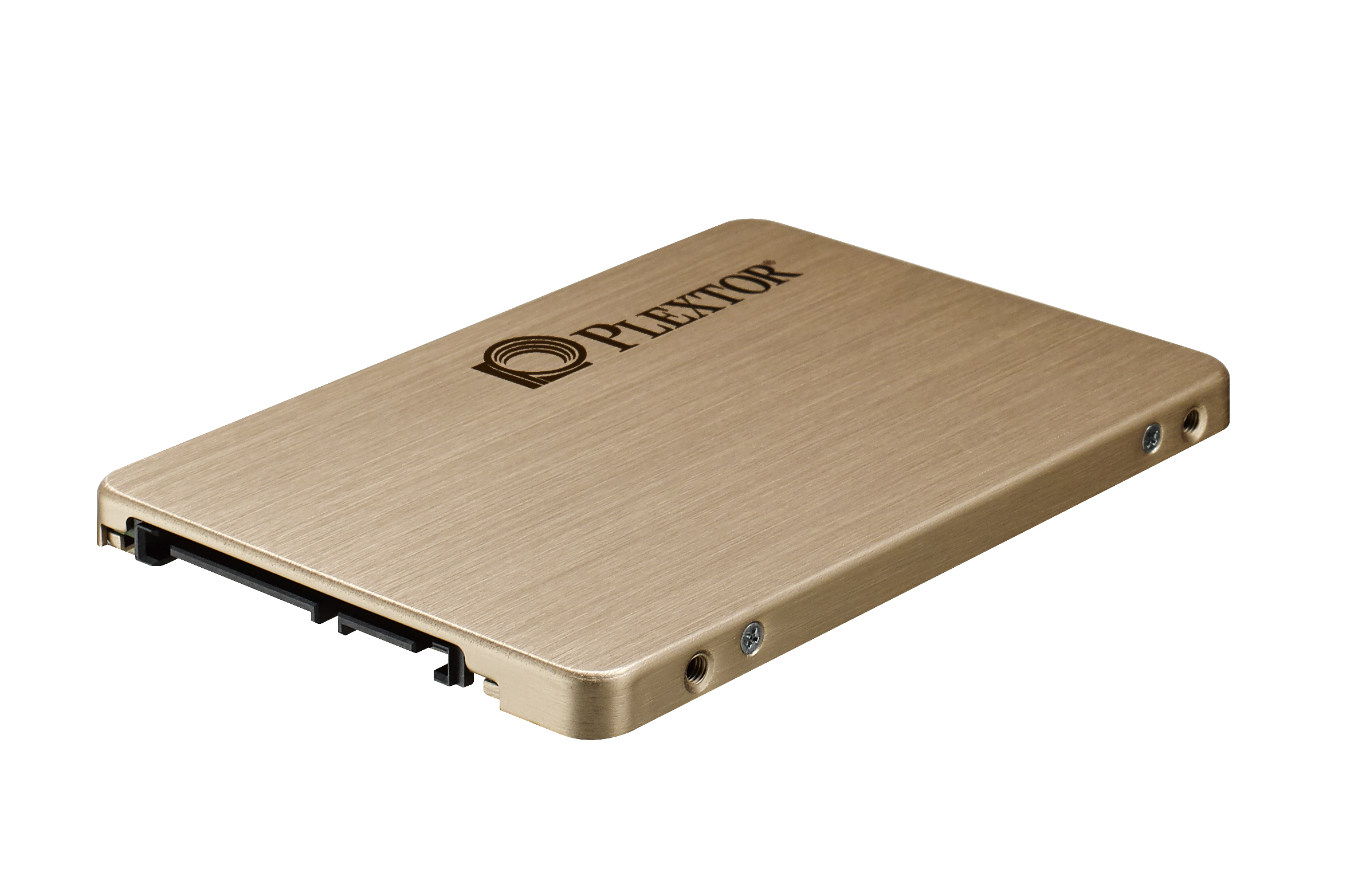Plextor's M6 Pro SSD Comes With PlexTurbo Caching Software
Plextor's new M6 Pro SSD comes with PlexTurbo software, which accelerates the SSD by using the system's memory.
Plextor is introducing its new M6 Pro SSD; with this unit, Plextor has tried to build a very fast, durable SSD, which is complemented by the presence of its PlexTurbo software.
Let's start with the SSD itself. The M6 Pro looks like a fairly standard 2.5" SATA3 (6Gb/s) SSD. Inside it we find Toshiba's 19 nm toggle NAND flash, along with a Marvell 88SS9183 controller. Performance is expected to sit at 545 MB/s for sequential reading, while write speeds can go up to 490 MB/s. The SSD also supports 256-bit AES encryption. Overall, this is very good, but at the end of the day, it's still limited by the SATA3 (6 Gb/s) interface.
Or is it? To accelerate the unit, Plextor has included the PlexTurbo software, which it has rewritten from scratch for this SSD. This software uses the system's RAM as caching space, ostensibly allowing performance to jump up by a factor of 10 for cached data. Of course, Plextor recognizes that system crashes or power failures can occur, and has therefore made PlexTurbo use active data comparisons. According to Plextor, this prevents unnecessary writes and prevents data loss during system crashes. How exactly this works remains unknown, so we're curious to see how this will work in practice.
"To build the M6 PRO, we looked at how storage was used by gamers, creative professionals and advanced system users, then we knew that we had to implement RAM caching as well as delivering on the hardware. Because we started PlexTurbo development from scratch, we've been able to optimize it to perform to the maximum with our exact hardware combination and to address the issues that users have experienced with other RAM caching software," said Sales & Marketing Manager Lear Wu.
Plextor will be releasing M6 Pro SSDs with capacities ranging from 128 GB through 1 TB this month, and we've reached out for pricing information.
Follow Niels Broekhuijsen @NBroekhuijsen. Follow us @tomshardware, on Facebook and on Google+.
Get Tom's Hardware's best news and in-depth reviews, straight to your inbox.
Niels Broekhuijsen is a Contributing Writer for Tom's Hardware US. He reviews cases, water cooling and pc builds.
-
Au_equus So... the obvious question: What are the differences, if any, between PlexTurbo and Samsung RAPID?Reply -
patrick47018 ReplySo... the obvious question: What are the differences, if any, between PlexTurbo and Samsung RAPID?
Name -
NeatOman I turned off RAPID on my 840 Pro because there is obvious lag, and unless you run a data center off of it i see no use for it (fairly crappy data center too).Reply -
JPNpower ReplySo... the obvious question: What are the differences, if any, between PlexTurbo and Samsung RAPID?
Plexturbo is much better and faster than Rapid, but mostly only because it is newer. Still not a good idea because disaster can strike during power loss if you don't have a UPS. -
photonboy Plexturbo is better because it's newer? That makes no sense. Samsung's Rapid Cache has been improving over time so if anything in this case older is better.Reply
I've seen no issues with Samsung Rapid Cache, though in reality it's very, very difficult to compare. Benchmarks don't test accurately and real-world usage doesn't lend itself to easy comparison.
As for the POWER LOSS issue that's a fair comment but then how LONG exactly is data cached before being written anyway? Probably far less than a second so if your data is that crucial get a battery backup (only needed for a desktop).
*I'd really like to see a proper TEST to compare these caching technologies. -
JPNpower Currently Plexturbo has better specs than Rapid because it had the advantage of looking at Rapid's weak aspects and creating a new software from the ground up to avoid those mistakes. I have no doubt that some newer version of Rapid in the very near future will match Plexturbo. I also have no doubt that both techs will improve enough that the difference would be negligible. Thus, while a comparison would be nice, it would also be kinda meaningless I think.Reply
The thing about Power Loss is a big issue though, as most people's data are very important. Plexturbo actually claims power loss protection with PT, but I want to see how that works in detail. Hell, I want to see a Toms test of that claim rather than some stupid benchmark comparison with Rapid.

